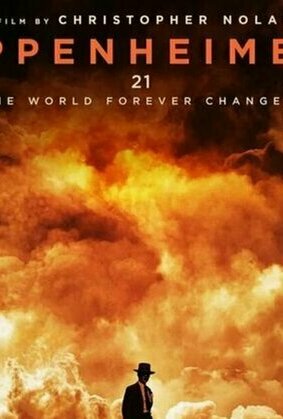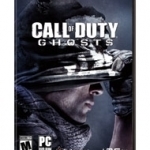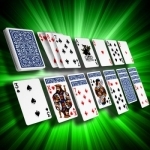
Solitaire City (Ad-Free)
Games and Entertainment
App
Play all your favorite solitaire games such as Klondike, Double Klondike, Spider, FreeCell,...
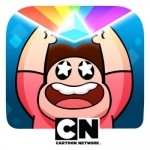
Attack the Light - Steven Universe Light RPG
Games and Entertainment
App
**Destructoid’s Best Mobile Game of 2015 Nominee** **Paste Magazine 10 Best Mobile Games of...
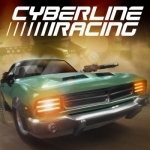
Cyberline Racing
Games and Entertainment
App
Cyberline Racing is the triumph of the death racing genre! This game combines action packed shooting...
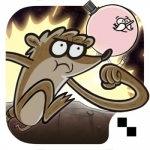
Best Park in the Universe – Beat 'Em Up With Mordecai and Rigby in a Regular Show Brawler Game
Games and Entertainment
App
Ready for the BIGGEST BEATDOWN in the cosmos? Help Mordecai, Rigby, Muscle Man and Pops battle...
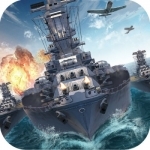
Naval Creed:Warships
Games
App
●Description● Naval Creed is a naval-battle-themed TPS game with 360° free perspective 3D...
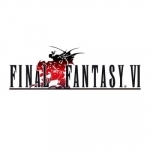
FINAL FANTASY VI
Games and Entertainment
App
==== We have received a report that the in-game language switches to English when the device is set...
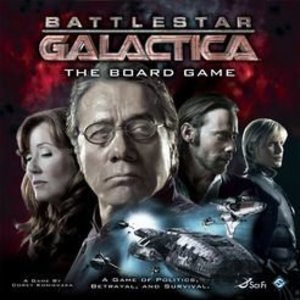
Battlestar Galactica: The Board Game
Tabletop Game
Battlestar Galactica: The Board Game is an exciting game of mistrust, intrigue, and the struggle for...
BankofMarquis (1832 KP) rated Beast (2022) in Movies
Sep 24, 2022
Such is the case with the “Cujo in Africa” killer lion saga BEAST starring Idris Elba as a widowed father of two teenage girls. The threesome head back to the African Village where the deceased mother was born and raised - to connect to their roots - unaware that poachers have unwittingly created a rogue, killer lion who is feasting on the humans in the area.
Directed by Batasar Kormakur (2 GUNS) and written, perfunctorily, by Ryan Engle (RAMPAGE) BEAST is a pretty by-the-book “wild animal goes after human” story with the first 1/3 of this 90 minute epic being the setup (in this case, clumsily setting up the daughter’s anger at their father who “was not there” as their mother was dying). Do you think the upcoming adventure is going to bring these 3 closer?
The middle third of the film is the hook where we put these 3 (and their friend, played by Sharlto Copley - DISTRICT 9) into harm’s way in such a way that they are trapped and must contend with the BEAST. And the final 1/3 is the payoff - how does this group conquer the BEAST?
Pretty mechanical, right?
Well…a funny thing happened while watching this film… I found myself invested in these characters, well…at least some of them, and I was genuinely interested and intrigued and (at times) a little on the edge of my seat as I watched them attempt to get out of their predicament.
Credit for this has to go to Director Kormakur who uses his camera to beautifully capture the Africa landscape that these folks are trapped in. It is a loving picture of Africa that Kormakur has drawn and it made the slow parts of this film (and there are plenty) bearable just by being able to look at the background.
Also helping this film is the friendship and camaraderie shown between Elba’s character and Copley’s character. These are 2 good actors looking like they actually are enjoying their time together and their actions on screen mirror their personalities that are drawn thinly and quickly during the first part of the film.
Fairing less well are the 2 daughters, played by Leah Jeffries and Iyana Halley. They are, for the most part, 1 dimensional “typical teenagers” who have a bone to pick with their father and don’t shy away from picking at that bone - and each other - throughout the course of this film.
But, enough about all of that, what one goes to see in these types of films is the animal attacks and Director Kormakur traps our foursome in and around a jeep while the BEAST attacks and attacks and attacks - and these scenes are shot very professionally and actually manage to ratchet up the tension as the CGI Lion goes after it’s victims.
There are enough plot holes to drive the aforementioned Jeep through in this film and sometimes the characters - especially the 2 teenage girls - make VERY dumb decisions, but the tension of the attack scenes and the work of Elba and Copley makes this film a decent (enough) viewing experience.
Letter Grade: B-
6 stars out of 10 and you can take that to the Bank(ofMarquis)
BankofMarquis (1832 KP) rated Oppenheimer (2023) in Movies
Jul 27, 2023
Based on the life of the “Father of the Atomic Bomb”, J. Robert Oppenheimer, Nolan’s latest epic is a rarity in today’s Motion Picture landscape - a prestige picture, bankrolled lavishly, filmed gorgeously and populated with a veritable who’s who of “A” list actors that tells a complex story of a complicated man who ends up remorseful of what he has unleashed in this world.
And it works very, very well.
Nolan regular, Cillian Murphy, is equal parts quirky, driven, determined and haunted in his multi-layered performance as the titular character - who is in almost every scene of this 3 hour film. He is fascinating to watch and his “more internal than external” performance draws the audience in throughout the events depicted in this film. It is the Best Performance of the career of one of the most interesting actors of this generation and one should not be surprised if his name is called during awards season next year.
Murphy is capably supported by a long list of strong performers giving strong performances in roles that are much smaller than ones they normally receive. Matt Damon, Florence Pugh, Josh Hartnett(!), Casey Affleck, Rami Malek, Matthew Modine, Kenneth Branagh (of course, it’s a Nolan film), Jason Clarke and Alden Ehrenreich bring their “A” game to roles that could have been thrown away.
Also, good ol’ Tom Conti (one of the most interesting actors from the late ‘70’s and early ‘80’s) shows up in this film as Albert Einstein and reminds us all why he is such a good performer…and…wait until you see who shows up for one scene in this film as President Harry S. Truman!
Oh…and don’t forget Emily Blunt (as Oppenheimer’s wife) and (surprisingly) Robert Downey, Jr. (as a politician using Oppenheimer for his own purposes). Both of them put in Award-winning-level uspporting performances, elevating two “A” list actors to the “A+ list”.
But this film is more than just it’s performers. Nolan demands - and receives - top notch work from the Cinematographer, the Sound Designer, the Editor, the Costume Designer and the Composer (Ludwig Goranssson, NOT Nolan regular Hans Zimmer). They (along with Nolan) craft a beautifully made and put together film that will dazzle the senses. If you get a chance, see this film in a movie theater and, if you can, see it in either iMAX or 70mm, you will be glad you did.
What holds this film back - just a little bit - is the story that is being told. Nolan (as he is want to do) plays with time and pretty frenetically cuts back and forth between about 4 different timelines to tell this story. It’s effective most of the time, but at other times, it becomes distracting and….with a 3 hour run time…does drag a bit at times.
But these are quibbles to a film that is “as good as it gets” by the BEST DIRECTOR plying his trade today. It is another triumph for Nolan and he will be making many, many acceptance speeches in just a few short months.
Letter Grade: A
9 stars (out of 10) and you can take that to the Bank(ofMarquis)
Gareth von Kallenbach (980 KP) rated the PC version of Call of Duty: Ghosts in Video Games
Jun 19, 2019
Starting a whole new story arc, the game is set in the near future when a group of militants from the Latin American-based power conglomerate called the Federation, launch a surprise attack on a space station and unleash a devastating attack upon cities of the American Southwest that utterly destroys many of them in the process. The game jumps forward in time and follows the exploits of two brothers named Logan and David who nearly escaped the destruction of San Diego and 10 years later find the remaining American forces fighting a war against the ever-expanding Federation forces. When a rescue mission goes awry, Logan and David find themselves recruited by their father Elias into an elite Ghost Squad unit who soon discover that members of their unit are being hunted down by a former member named Rorke who was assumed killed on a mission many years earlier. The fact that Rorke may also be behind the attack on the United States as well as a big cog in the Federation’s plans springs the team into action with the fate of the United States hanging in the balance.
Players will play as various characters and assume control of everything from remote operated weaponry, Apache helicopters, tanks, and even a German shepherd named Riley who is a very welcome addition to the series. The heavily modified engine produces some amazing graphics in the game especially during some of the more scenic locales ranging from underwater missions to snow-covered landscapes as well as desolate cities such as Vegas and San Diego. Playing on the PC, did require a bit of patience at launch as the graphics did not seem up to par with what we’ve come to expect from the series much less a next-generation tweaking of the engine. Thankfully the game was soon patched and the graphics stepped up considerably although in multiplayer there were some frustrating moments where the mouse was not recognized and I had to do a series of workarounds until a patch resolved the issue. I still have occasional issues with the system wanting to reset the graphics down to the base level even though my card is more than capable of running the high-level graphics setting. This is a very minor annoyance though as I am able to customize the controls and settings anyway that I like and the gameplay is absolutely phenomenal as the developers clearly put an emphasis on a higher frame rate and smoother gameplay experience.
Fans of the series will know what to expect as there are a lot of familiar touches such is the wave-based attacks, stealth missions, and at the gun battles that are signature of the series. Early in the game, many moments seem to have been almost carbon copies of earlier games but thankfully the game finds stride roughly at the midway point and presses the accelerator all the way to the boards for one nonstop thrill ride which includes an epic finale and some shocking moments along the way not the least of which are the bonus scenes during the credits.
While I was able to complete the solo campaign in just under five hours I did find myself really caught up in the story and the characters which is something that I had not experienced in Black Ops 2 as a largely completed the solo play portion of that game out of obligation rather than compulsion. Absolutely love the space fight sequences as the Zero G combat was great and I would absolutely love to see an entire game set in this environment. I also loved taking control of the tank and running over opponents while unleashing furious amounts of firepower upon all those that crossed my path.
Now multi-play is the bread-and-butter of series and Ghosts definitely has a lot to offer in this category. From the co-op missions to the alien infested “Extinction” mode for up to four players battle against hordes of aliens for survival the game truly has something for everyone. Fans will be happy to know that in addition to the standard Death Match, Team Death Match, Kill Confirmed, and Domination modes there are five other modes which include Infected, Blitz, Search and Rescue, Search and Destroy, and Cranked as well as the standard and Hardcore modes of play.
Customization has long been a big part of the series and this timeout players can play is either a male or female character and have the option to customize the look of their player and online matches down to the type of headgear and uniform that they wear. As with previous games in the series, players are awarded points for kills, assists, and other challenges and actions during gameplay which allow them to rank up and obtain new weaponry, perks, and kill streak rewards. While I did find the customization menus took a little bit to get used to after being so familiar with the ones in the previous games, I soon was up and running and found plenty of options to my liking and I continue to experiment with various configurations to date.
The online maps are fantastic and full of detail however some of them appear to not have the same graphical wow as others because most of them absolutely blow you away and are filled with all sorts of nice touches such as dust and particle effects which have caused players with itchy trigger fingers to jump at shadows and shooter the paper flowing in the wind. The biggest complaint many people have with the maps is that they are extremely large in size and would be better suited for larger teams rather than the current number that is limited for online play. I specifically enjoy one in the snow as well as one set in a devastated city complete with leaning and partially destroyed buildings which allow endless opportunity to get the drop on your opponent especially from many floors up.
While I had some initial frustrations with the game, they quickly vanished and the more time I spent with it the more I was drawn into the characters and storyline as well as the multi-play versatility of the game. Well if used frustrations remain I have no doubt they will be patched eventually, and while I would’ve liked a slightly longer story mode what was presented was absolutely epic and delivered one of the best call of duty experiences to date.
I highly recommend the game and encourage people to focus on the many things that the game and gets right instead of lamenting about things that you wish they were included or what you feel was done wrong because it is a phenomenal ride that is not to be missed.
http://sknr.net/2013/11/17/call-of-duty-ghosts/

